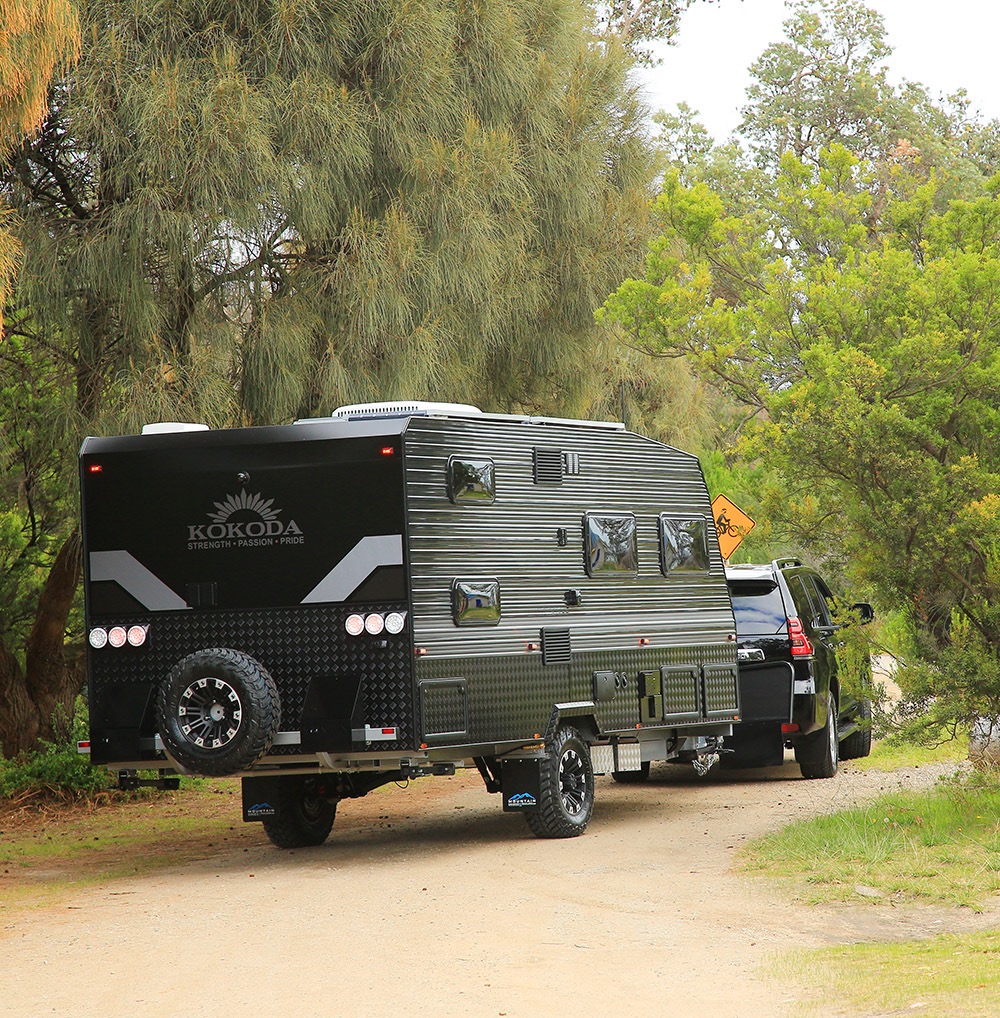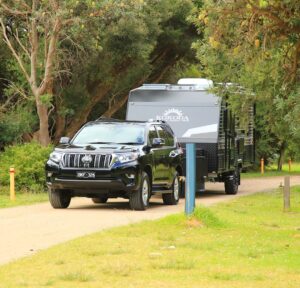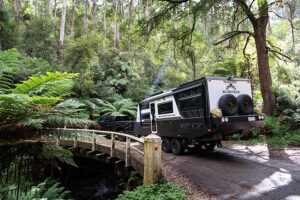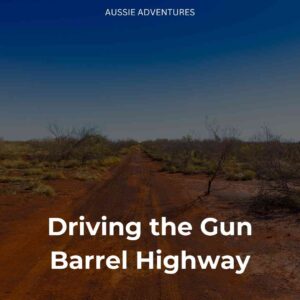Here are some useful tips when driving
Your vehicle will perform differently when you are towing a caravan, so here are a few things to be familiar with before heading out.

1. Towing: Be careful when overtaking. Swing wide do not cut corners when towing a caravan. What if the caravan starts to sway?
Don’t slam your brakes on. The key here is to slow down smoothly. Take care when parking two problems exist when parking a caravan. Firstly the caravan is probably wider than your car. Secondly, it is probably taller as well.
2. Off-Road Travel: When travelling off-road, your vehicle should not be taken for granted, as remote area travelling will place additional stress and strain on the mechanical components.
Remember that your items will bounce around inside whilst on the road. Storing food, plates, cups can be a headache so remember to pack smartly and where possible, use items that can resist such elements.
Other clever tips are to remove the turntable inside your microwave before travelling to avoid any accidents. If you have a tri-fold table always close it and strap together before you travel as rough roads can often cause it to crack or come away from the fittings. Remove all loose items and store away before travel.
3. Checks to Follow: We recommend the following checks as a minimum.
- Look for oil leaks from the engine, transmission and shock absorbers.
- Check radiator coolant level.
- Check brake fluid level.
- Check battery terminals for tightness.
- Check battery fluid level.
- Check engine oil level.
- Check auto transmission oil level.
If you have been travelling on rough corrugated roads, check under the vehicle from time to time to make sure everything is in order. We also recommend keeping your door lock and hinges lubricated with light oil.
4. Speed and Tyre Deflation: We cannot express how crucial this is to off-road caravanning. For outback tracks and corrugations, always reduce the tyre pressure and always reduce your speed. As a rule, your tyre pressures on the vehicle and van should be reduced by about 20% of the normal freeway pressure, and likewise your road speed should be reduced to 60kph.
Rough and severe corrugations have been known to cause shock absorbers to build up excessive heat. This can result in their failure. We advise frequent stops to allow your shock absorbers to cool down.




